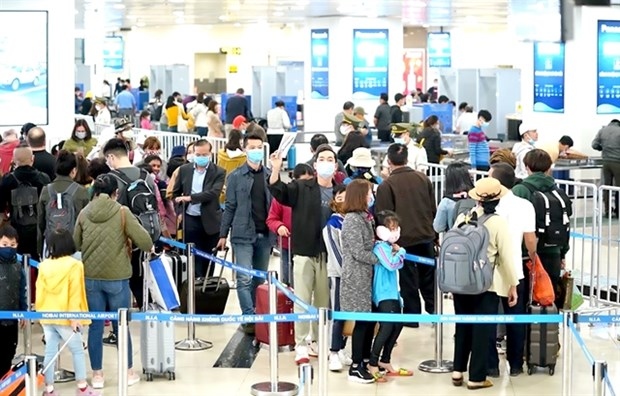
VNS
8047 newsArticles by author

ASMPT opens in Hanoi
ASM Pacific Technology Limited (ASMPT), the leading global supplier of hardware, software, and service solutions for integrated smart factories in the semiconductor and electronics manufacturing industry, has opened an office in Hanoi.

Vietnam completes policies to develop modern commercial infrastructure
Vietnam will complete policies to develop commercial infrastructure to meet the national socio-economic development needs.

Banking system’s liquidity remains good: SBV Governor
The liquidity of the whole banking system has remained good, Governor of the State Bank of Vietnam (SBV) Nguyen Thi Hong has said.

Air passengers near pre-pandemic levels
The total number of air passengers passing through domestic airports will reach 80% of the peak in 2019, said Dinh Viet Thang, director of the Civil Aviation Authority of Vietnam (CAAV).

Vietnamese bank gets US$150 million loan from IFC
The Vietnam International Bank (VIB) has just completed the procedures for the disbursement of a US$150 million loan from the International Finance Corporation (IFC), a member of the World Bank Group.

Plenty of franchising opportunities in Vietnam: conference
Vietnam has a lot of opportunities for franchising, with many businesses having the capability to become a franchisee, even a master franchisee, a recent conference has heard.

Wage hike needs to keep up with inflation control
Vietnam is set to increase the base wage from July 2023.

First international half marathon scheduled on New Year day
Elite Asian athletes will be invited to compete in the 2023 Vietnam International Half Marathon on January 1, 2023 in Hanoi.

Bayer helps enhance knowledge of stroke prevention, treatment
The latest updates and best practices in stroke treatment and strategies for preventing the condition were discussed at the Scientific Symposium on Stroke organised by the Ho Chi Minh City Stroke Association.

Boosting niche markets key to maintaining exports
Boosting Vietnam’s exports to niche markets was key to minimising the impact of a looming global recession, said Vu Ba Phu, head of the Department of Trade Promotion under the Ministry of Industry and Trade.
